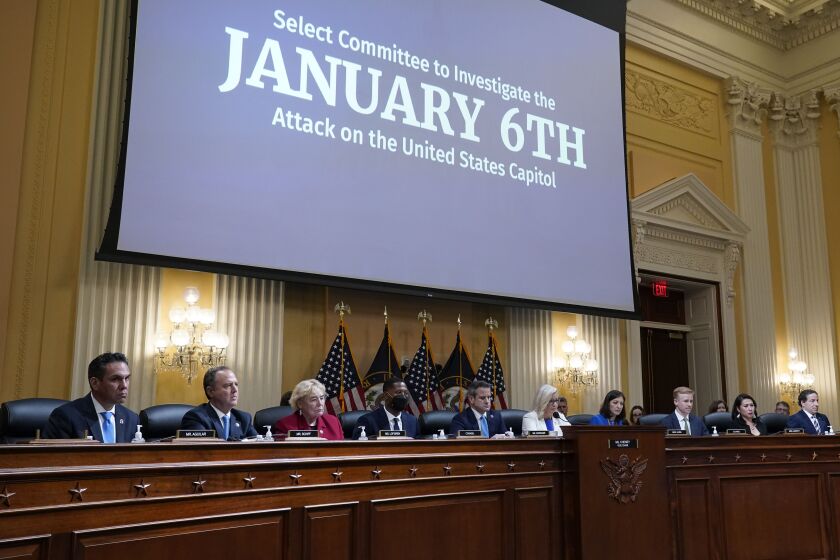Three of the hardest words to voice among close friends and family are “I was wrong.” I suspect many of us face situations where some of those close to us are trying to marshal those words regarding Jan. 6, especially now that House committee hearings have led even the most conservative editorial pages to condemn the former president’s conduct.
I also suspect, however, that many of those close to us are having a hard time of it. Emotions get in the way, and maybe a concern that we might be keeping score. We need to handle this juncture properly.
Our small circles are microcosms for the country. Getting it right in those circles will set the stage for the wider discourse needed to tackle the serious problems our country faces ahead.
Those close to us who were wrong about Jan. 6 should know that we see their mistake in proper context. False prophets have come before, and having some of the people get fooled some of the time is endemic to politics. To be sure, we would submit that backing the former president as to Jan. 6 was egregiously wrong from the beginning. But we have to be able to move forward.
It is important to separate others’ Jan. 6 mistake from honest differences of opinion on policy. We should assure people in our circles that we do not think them “wrong” for holding strong policy views. It is not “wrong” to have opinions that prefer lower taxes for all, a more unilateral foreign policy or for the balance in free religious exercise to shift a bit. Nor is it “wrong” to have different opinions on interpreting the Second Amendment, or that the prior administration had a preferable energy policy, or that mask mandates eventually went too far.
We would remind them that many of us will disagree with them, often vigorously, on one or more of those points. We will try hard to change their minds. We will vote our conscience, and so should they. But we do not discredit them for holding valid policy opinions.
A fictional movie “American President” reminded us in 1995 that “America is advanced citizenship.” In dramatic terms, our freedom requires us to “acknowledge a man whose words make your blood boil, who’s standing center stage and advocating at the top of his lungs that which you would spend a lifetime opposing at the top of yours.”
A baseline of truth
But as the saying goes, we are entitled to our own opinions, not our own facts. The mistake as to Jan. 6 was not about policy opinions.
It was wrong to insist there was election fraud without evidence and in the face of dozens of failed court cases. It was wrong to insist the president did not say what he said that day, signal what he signaled, make the choices he made or fail to do what he should have done.
It was wrong to ignore clear images of thugs with gallows targeting the vice president, to blurt “fake news,” or to dismiss the unique and incredible Capitol and election context. It was wrong to condemn White House staff for speaking out or to ignore life-saving sacrifices of Capitol police.
That brings us to today. Here we are. Whether at the dinner table, along the Beltway in Washington, D.C., or in statehouses, it is time to return to solving problems. Acknowledging the truth, but not having that acknowledgment misused, is a necessary first step.
Democracy breathes on a baseline of truth. Our country was founded on an axiom that some truths are self-evident. Facts have to matter before opinions are weighed and courses chosen.
Those in the wrong should acknowledge the truth, to reaffirm the foundation for future discourse. The rest of us should accept their acknowledgment and not cite it to invalidate anyone’s policy views. Just because we got it right about Jan. 6 does not, in itself, mean we are right on all policy matters.
That is the path forward. We need civil discourse again, not entrenched grudges. We need good judgment to select wise courses of action, including on matters where we have many facts yet must ultimately act upon well-founded opinions. We need vigorous debate to reach effective outcomes and sensible compromises, and for actions to be accepted.
This process can start in our closest circles and grow from there. It is time to start disagreeing again in the right ways and on the right sorts of things.
John J. Hamill is a lawyer from Northfield. Follow him on Twitter @jjh349
The Sun-Times welcomes letters to the editor and op-eds. See our guidelines.





